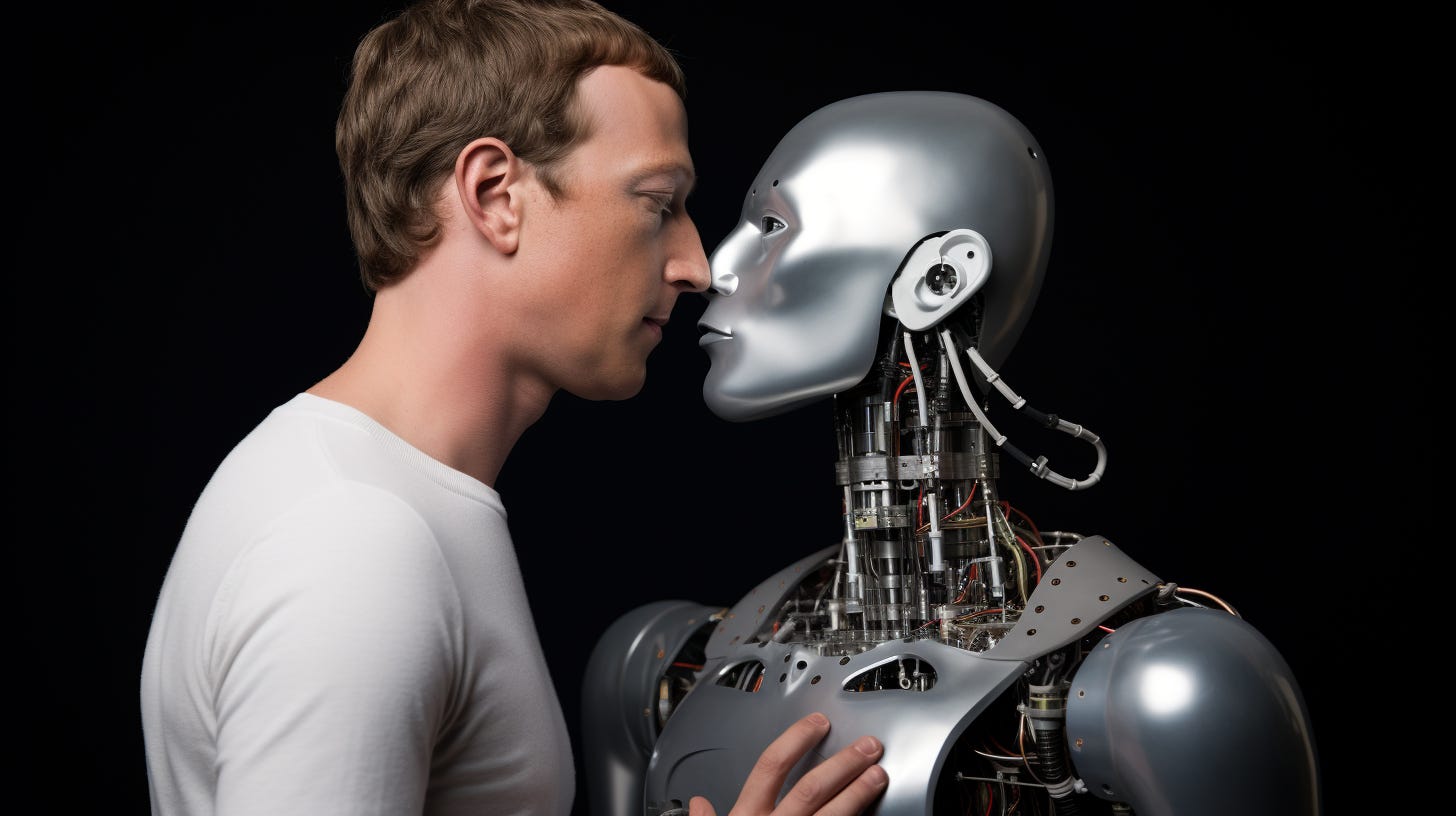Facebook says it’s here to help. Again.
According to Meta CEO Mark Zuckerberg, the new “Friends” tab is a gift. A warm blanket. A nostalgic hug. A return to the good ol’ days when social media meant seeing baby photos, dinner plates, and questionable memes from your high school lab partner without being interrupted by algorithmically pumped sewage.
But what if that’s not what this is?
What if this new feature isn’t a benevolent attempt to bring back the “magic of OG Facebook,” but a tactical concession? A surrender flag fluttering from the top of a burning tower?
What if “Friends Only” is not a fix, but a filter?
And what if—hear me out—it’s just Phase One?
THE POLITE QUARANTINE
Let’s be blunt: Facebook’s main feed is a digital landfill. Post anything remotely engaging—an opinion, a question, a mildly provocative image—and within seconds, the floodgates open.
You get comments like: “You looks so amazing. I tried to friend you but couldn’t. Can you send me a request?” Or: “I saw your comment and felt led by the Spirit to tell you how beautiful your heart is.” Or the classic: “Follow my page. I’m in the Royal Danish Navy and also a surgeon in Arizona.”
These aren’t people. They’re spam-scented hallucinations, algorithm-churned romance scams stitched together with stock photos and broken grammar.
And Facebook? Facebook lets it happen. Encourages it, even.
Bots inflate engagement. They mimic life. They create the illusion of a bustling community when, in fact, you’re standing in a haunted warehouse full of cardboard cutouts that whisper compliments as you pass.
So what is the “Friends” tab? It’s not the rebirth of OG Facebook. It’s a digital panic room. A last refuge. It’s Facebook quietly admitting: we can’t fix the problem, but we can help you hide from it.
And who’s behind this pathetic little hideout? The same man who recently spent $4,095 buying the shirt Jesse Eisenberg wore while pretending to be him in The Social Network. Yes, Mark Zuckerberg bought back a costume of himself. That’s not just embarrassing — it’s tragic cosplay by a billionaire who hasn’t had a new idea since the Bush administration.
Mark, this isn’t a redemption arc. You’re not reclaiming your narrative. You’re just playing dress-up with your own mythology, while your platform collapses under the weight of Nigerian crypto widows and horny AIs pretending to be military personnel. You could have funded clean water for an entire community. Instead, you bought your own movie shirt like a teenager bidding on eBay because no one came to their birthday party.
PHASE TWO: BOTS ONLY
Now lean in. Because here’s the real kicker: what if this whole thing isn’t about protecting you at all?
What if this is just a test market for a second feature, still lurking behind the curtain? A product designed for the users who didn’t just tolerate the bots—but secretly kinda loved them?
Ladies and gentlemen, welcome to the future of social media: Bots Only.
A no-judgment zone for the bot-curious. A fully immersive feed where the people you interact with are guaranteed to flatter you, never question you, and always be available.
In Bots Only, every comment is positive. Every DM begins with “hello dear” and ends in a broken link. You’ll never feel lonely again, because an infinite stream of AI-generated suitors are one click away from telling you that your profile radiates light and power.
And Meta? Meta gets to monetize both sides: the humans who want to escape the bot deluge—and the humans who want to swim in it.
Because why build walls to keep bots out when you can sell them beachfront property?
Zuckerberg doesn’t care if your emotional needs are being met by a Russian language model trained on romance novels and phishing attempts. If you’re clicking, he’s cashing checks. And if you’re falling in love with a pixelated widow from Oslo who says you look divine in your profile photo, well — that’s just user retention, baby.
THE SAD TRUTH: FACEBOOK COULD STOP THIS
Let’s not pretend they can’t see it. These bots are obvious. Zero mutual friends. Identical comments. Bios that list seven careers and three continents. Profile photos lifted from the fourth page of a Google image search.
Facebook can detect your face in a middle school yearbook photo from 2008. It can flag nipples with surgical precision. But it can’t figure out that a comment reading, “You looks so amazing I tried to friend you but couldn’t,” posted 9,000 times in one hour, might be worth looking into?
Of course it can. It just won’t.
Because bots drive metrics. Bots boost post visibility. Bots make dead platforms look alive. They’re the embalming fluid of the algorithm, giving the illusion of life while real engagement rots beneath the surface.
And let’s be clear: this is what Zuckerberg has built. This is his legacy. Not social connection. Not innovation. But a sprawling graveyard of fake interactions and hollow dopamine. Every bot, every scam, every automated compliment in broken English is a monument to a man who once dreamed of changing the world and settled for commodifying loneliness.
Somewhere, in the quiet corner of a gated compound, his parents must be watching this unfold and wondering what they raised. A genius? Or a glitchy little puppet who thinks owning his own movie shirt counts as personal growth?
THE ENDGAME
Don’t be surprised when the Bots Only tab drops.
Don’t act shocked when Zuckerberg announces it like a breakthrough: “We’re giving people a new way to connect—with accounts they find most meaningful.” Don’t flinch when Facebook starts selling ad space next to auto-generated love letters from AI widows and crypto-soldiers.
It’s not a bug. It’s the business model.
Because in the end, Meta doesn’t care whether the engagement is real. Just that it never stops. And if we’re all swimming in artificial affection and weaponized flattery, at least now we’ll have a clean place to towel off.
Until that room fills up too.
To our readers and subscribers on Substack: thank you. You’re part of a platform where human connection still matters, where content isn’t buried under bots or bait, and where truth and humor aren’t throttled by algorithmic nonsense. It’s better here—and we’re grateful you’re with us.
This post has been syndicated from Closer to the Edge, where it was published under this address.



